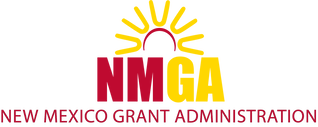Deadline: Applications open June 1, 2025
Award Amount: $5,000 – $40,000
Match: Required 2:1 match. The match can include any combination of cash and/or in-kind (See FAQ page 8 for more details). NO match required if you meet special criteria.
Eligible Entities: Tribes, Pueblos, and Nations; municipalities; counties; nonprofits; K-12 schools/districts; colleges/universities.
Description: This grant invests in conservation-minded shovel-ready projects that are open to the public, increase access to outdoor opportunities, and demonstrate a clear economic benefit to the community through improved quality of life, better public health outcomes, and/or increased eco-tourism. Grants are available to tribal, rural, acequia/land grant, and urban communities.
DOE – SBIR/STTR Grants
Deadline: LOI January 14, 2025 Full Application February 26, 2025
Award Amount: Varies
Match: None
Eligible Entities: Businesses
Description: The Federal SBIR STTR Programs were reauthorized on September 30, 2022, when the SBIR/STTR Extension Act of 2022 became law. This Act extends the SBIR STTR Programs through to September 30, 2025.
EDA – Public Works and Economic Adjustment Assistance Programs
Deadline: Rolling
Award Amount: $100,000 to $5,000,000
Match: None
Eligible Entities: Federally recognized tribes
Description: EDA supports bottom-up strategies that build on regional assets to spur economic growth and resiliency. EDA encourages its grantees throughout the country to develop initiatives that present new ideas and creative approaches to advance economic prosperity in distressed communities.
2024 HerRise MicroGrants
Deadline: Apply by 11:59pm on the last day of the month to be eligible for that month
Award Amount: $1,000
Match: None
Eligible Entities: 51% women owned, registered in the US, and less than $1 million in gross revenue
Description: The HerRise MicroGrant, providing $1,000 each month, is available to under-resourced women, including women of color entrepreneurs, across a variety of industries. The HerRise MicroGrant offers financial support to innovative women who struggle to secure funding for their community-impacting small businesses. Small business grants are useful for financing a particular small business need. Past recipients used their growth grants for computers, equipment, marketing materials, software purchase, website creation and more.
Etsy Emergency Relief Fund at CERF+
Deadline: Rolling
Award Amount: $2,000
Match: None
Eligible Entities: All Etsy sellers are eligible for a grant if they have experienced a federally declared natural disaster within the past year, have been an active seller on Etsy for at least one year, and their accounts with Etsy are in good standing.
Description: Etsy is committed to helping its creative entrepreneurs recover when disasters disrupt their businesses. They’ve partnered with CERF+, a nonprofit organization focused on helping artists prepare for and recover from emergencies and disasters, to create a disaster relief fund just for Etsy sellers. Each quarter, they work with CERF+ to award grants to a select number of eligible sellers. Any Etsy seller who has experienced a federally declared disaster within the past year may apply for a grant as long as they’ve been active on Etsy for at least one year and their accounts with Etsy are in good standing. Grants of $2,000 are available to sellers when they apply.
The Audience Innovations Fund – For Filmmakers
Deadline: Rolling
Award Amount: $5,000 to $50,000. Amount applied for should not exceed 50% of the overall marketing budget for the film(s).
Match: 50%
Eligible Entities: Businesses and Nonprofits that can demonstrate previous experience distributing and marketing independent feature films.
Description: The Audience Innovation Fund is a new program that promotes fresh strategies to grow audiences for independent film releases by awarding grants for bold experiments around distribution and marketing, and by providing educational resources for film teams to encourage a renewed focus on audiences. In a challenging time for film, the Fund’s strategy aims to offset the risk of testing new methodologies to strengthen the engagement with thought-provoking films in media culture.
International Women’s Media Foundation
Deadline: Dependent upon grant.
Award Amount: Dependent upon grant.
Match: None
Eligible Entities: Dependent upon grant.
Description: The media is not truly free and representative without the equal voice of women and nonbinary people. IWMF seeks to empower women and nonbinary journalists with the training, opportunities, and support to become leaders in the news industry through various forms of grant funding.
DOT – SBIR Grants
The Small Business Innovation Research (SBIR) Program is a highly competitive award system that provides qualified domestic small businesses with opportunities to pursue research on and develop innovative solutions to our nation’s transportation challenges.
DOD – SBIR/STTR Grants
SBIR and STTR grant funding opportunities offer small business entrepreneurs a chance to obtain non-dilutive funding for early-stage research and development. Applications are accepted throughout the year.
NIH – SBIR/STTR Grants
SBIR and STTR grant funding opportunities offer small business entrepreneurs a chance to obtain non-dilutive funding for early-stage research and development. Applications are accepted three times a year.
NASA SBIR/STTR
The NASA Small Business Innovation Research / Small Business Technology Transfer (SBIR/STTR) program is part of America’s Seed Fund, the nation’s largest source of early-stage non-dilutive funding for innovative technologies. Through this program, entrepreneurs, startups, and small businesses with less than 500 employees can receive funding and non-monetary support to build, mature, and commercialize their technologies, advancing NASA missions and helping solve important problems facing our country. Whether your destination is the Moon, Mars, or the marketplace, the NASA SBIR/STTR program wants to help get you there!
